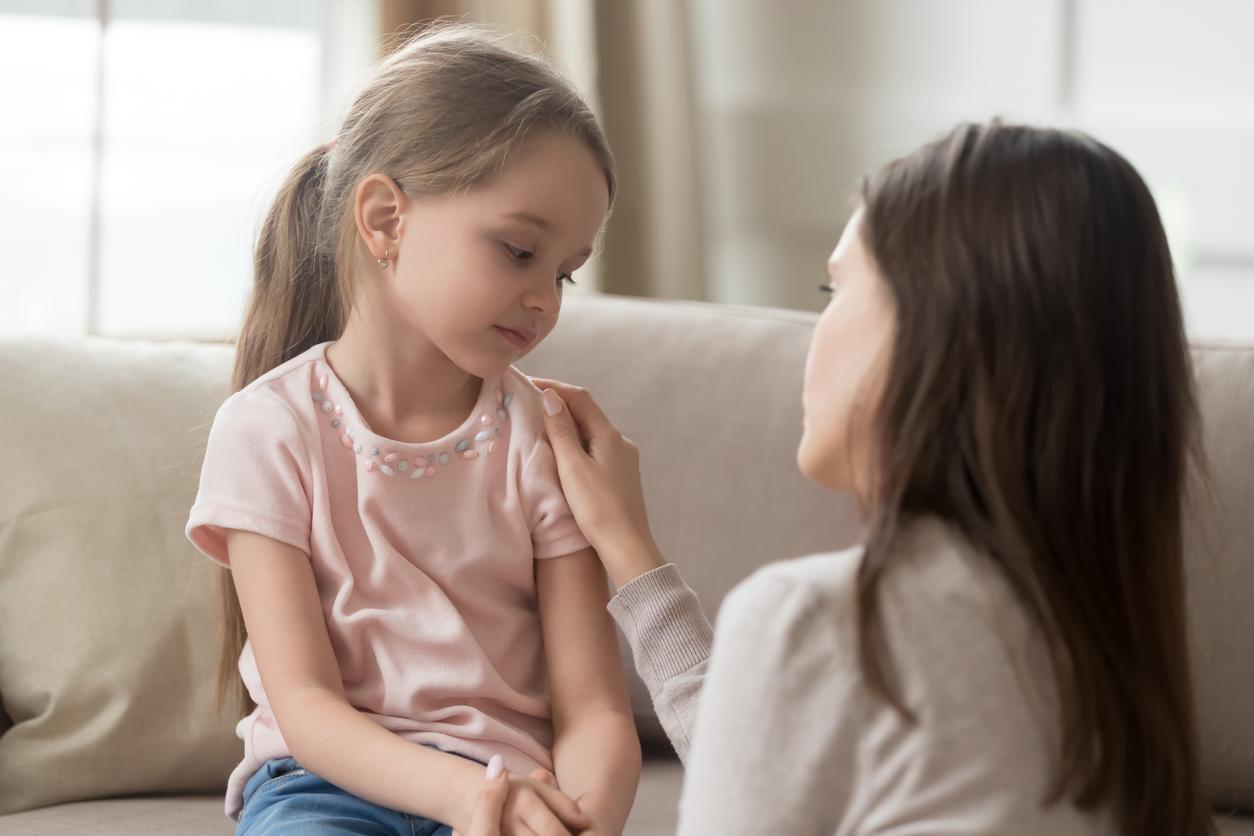Even the little ones can feel stress in the face of an event, so how can you help your child as a parent?

- Stress hormones are present from birth and many situations can trigger them and cause particular symptoms in children.
- Discomfort, tantrums, nightmares, isolation… are all signs to spot.
- The child who is under stress needs listening, support and reassurance in order to be able to find a solution to what worries him.
Adrenaline and cortisol, stress hormones, are present from birth, to react in case of danger or threat. In children, many situations can trigger them and cause particular symptoms.
Why is the child stressed?
Regardless of their age, children trigger stress hormones when faced with a new, unforeseen or out of control situation. It can be a change in his personal life such as a separation from his parents, or the arrival of a new little brother or sister, but also a speaking situation in class, a change usual or meeting new people for example.
Certain symptoms can mean that the child feels stress in his daily life without it seeming obvious to adults: if he feels faint, has fits of anger, has nightmares, if he isolates himself or becomes agitated.
It is often when one of these symptoms appears, whereas it was not the case until now, that it means that the child is under stress.
Parent: how to understand the cause of your child’s stress
To help your child, you must already try to determine the cause of his stress through dialogue with him: is it a problem at school, with his friends, in connection with overwork, a noisy environment , a sudden event that he may have seen on TV, etc.
Take the time to talk to him without judging him or minimizing his feelings. Always answer their questions in a simple but honest way and direct them towards solutions.
Helping your child better manage stress
The child who is under stress needs listening, support and reassurance in order to be able to find a solution to what worries him. To do this, you can, for example, encourage him to find solutions together, release the pressure he puts on himself, or help him regain control in his daily life.
Certain lifestyle habits can also help him limit exposure to certain stress factors, for example by regulating television exposure, allowing him to have a good routine, a balanced diet, good sleep hygiene and frequent physical exercise.
Find out more: “We bring calm home: Helping your child calm stress, agitation, anxiety and anxiety” by Anne-Laure Mahé.















